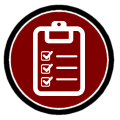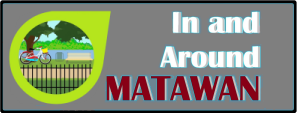| Our COMMUNITY | ||||||||||||||||||
| ||||||||||||||||||
Board Appointments Made by Mayor with Advice and Consent of the Council
(Except Where Otherwise Noted)
Animal Welfare Advisory Committee – Created by Ordinance 15-21
(Meets On As-Needed Basis)
Animal Welfare Advisory Board Council Committee
Melanie S. Wang
Charlie Ross
Stephanie Buckel
Consists of Three Members
(One Year Terms)
Member: Loretta Windas 12/31/23
Nadine Hemy 12/31/23
Suzanne Reynolds 12/31/23
Contact us at: Animal.Advisory@matawanborough.com
CLICK HERE FOR FERAL CAT ISSUES
Q: How can I find a reliable petsitter?
A: We recommend you ask around. Ask your friends or relatives in the area which service they use and if they are happy with it. You might also call your pet's veterinarian or a local animal shelter; both of these may be willing to recommend a petsitter. Some petsitters do petsitting as a side job and their "day job" is veterinary technician, so animal hospitals may also provide some good petsitting references. Once you've found one or two that look good, invite them to your home for an interview. This way you can ask them about their services and they can meet your pet(s), and you can get a sense of how they interact with them, which is, after all, the most important thing. Don't be afraid to ask them for references, too.
Spring heralds new awakenings of new grass, flowers, and leaves on trees. It also stirs wildlife to venture out seeking food, a mate and playtime. After all, humans aren’t the only ones who want to experience the warmth of the sun and fresh air!
It is because spring is a popular time to get outside, fix up the yard and dig in the garden that many people encounter wild animals. Our wild neighbors nest in trees, near ponds, under bushes or in the woods nearby. We come into contact with them when we accidentally disturb these hiding places when clearing brush, trimming trees, mowing the lawn and so on. Most people don’t know what to do with an animal they’ve found, and we tend to feel especially helpless when it’s a baby animal. This article is geared toward helping you figure out what to do if you find a wild animal.
A common occurrence is finding a baby bird. If you find a baby bird, it is quite possible it fell out of a nest more or less above where you find it. The Animal Rehabilitators Alliance states on its website that if “…you can reach the nest, you can gently put them back into the nest and the mother will accept them. You can wear gloves to do this, but if you do touch them, it is fine. It is a[n old] wives tale that the mother will not come back” ( http://animalra.com/?page_id=44 ). (They also have good advice if you are unable to find or reach the nest.)
Another common baby animal sighting is fauns. It is a mistake to think that a baby faun left by itself has been abandoned by its mother. Deer mothers leave their babies lying down in a safe place while foraging for food. Chances are good that if you come across a faun, its mother is nearby, watching you, and will return for her baby when the time is right. Should you still see the baby in the same place two days in a row, the New Jersey Association of Wildlife Rehabilitators states “If the fawn has not moved, or mom has not returned by the next morning, please contact the wildlife rehabilitator closest to you. If the fawn is injured, there is a foul odor or flies around it, please contact the wildlife rehabilitator closest to you” ( http://njawr.com/NeedHelp.html#deer ). (More on wildlife rehabilitators below.)
It is important to remember that not all found wild animals need assistance. The Humane Society of the United States’ website can help when assessing whether or not an animal needs help. For example, the guidelines given at http://www.humanesociety.org/animals/resources/tips/injured_orphaned_wildlife.html?credit=web_id93480558 include the following:
- Presented by a cat or dog
- Evidence of bleeding
- An apparent or obvious broken limb
- Featherless or nearly featherless and on the ground
- Shivering
- A dead parent nearby
- Crying and wandering all day long
If, upon checking the above list, you determine that the animal is injured and/or abandoned, first call a wildlife rehabilitator (see paragraph below), who can help you figure out next steps. Should it be determined that the animal must be taken to a rehabilitator immediately, follow the steps listed here at “Capturing and Transporting The Animal”: http://www.humanesociety.org/animals/resources/tips/injured_orphaned_wildlife.html?credit=web_id93480558#Capture_and_Transport
Another extremely useful link with tips on how to help injured wildlife is this printable pdf provided by the New Jersey Association of Wildlife Rehabilitators: http://njawr.com/forms/IFOUND-NJAWRFINAL.pdf .
Many species leave babies hidden and alone during the day while parents forage for food. The above link provides a list of different species’ parenting behaviors.
In New Jersey (as in most other states), there are wildlife rehabilitators we can call for advice when confronted with an abandoned or injured wild animal. Wildlife rehabilitators are specially trained volunteers who are licensed by the State of New Jersey to care for wild animals. There are two organizations of wildlife rehabilitators: the Animal Rehabilitators Alliance, and the New Jersey Association of Wildlife Rehabilitators. Their websites contain valuable information of what to do when you find a baby or injured wild animal. Both sites include a list of rehabbers and the animals they are licensed to work with: http://animalra.com/?page_id=21 and http://www.njfishandwildlife.com/pdf/rehab_list.pdf .
It is illegal in New Jersey to keep a wild animal, so if you find one in need of help, you must bring it to a rehabilitator after you’ve rendered any initial emergency care.
Questions concerning found wildlife can also be directed to your local animal shelter. In our area, that is the Monmouth County SPCA, Old Bridge Animal Shelter and the Associated Humane Society in Tinton Falls.
-
Feral Cat Issues -
Tethering.Shelter Law FAQ Sheet_residents (pdf) -
Anti-tethering, extreme weather statute text (pdf) -
Bringing Home A Pet For The Holidays (pdf) -
Matawan Borough Animal Advisory Committee Facebook -
Pets in Hot Cars 2016 (pdf) -
Pets and Fireworks Advisory (pdf) -
Pitbull Support Non Profit (pdf) -
Spring Advisory 2016 (pdf)
















